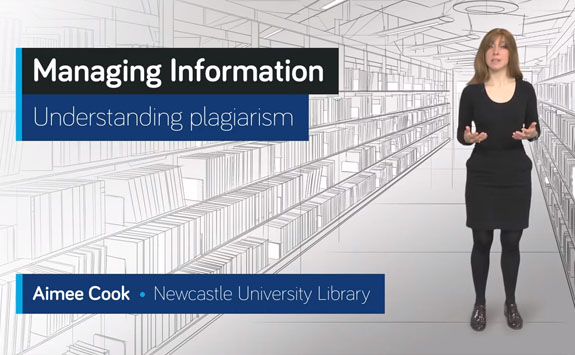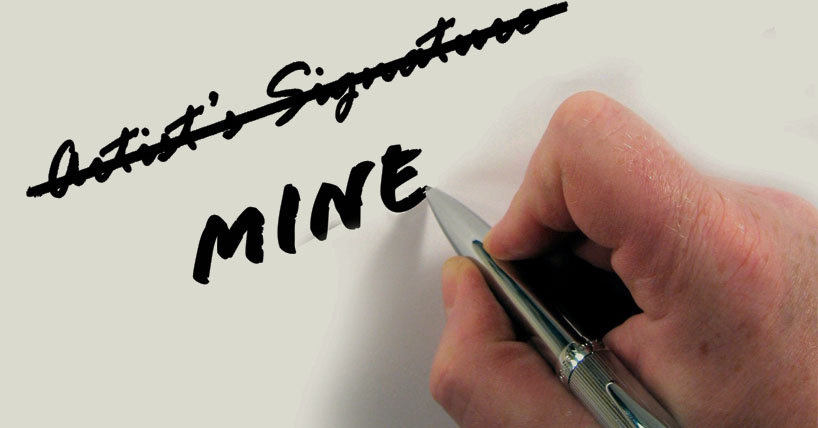Plagiarism
Guidance on understanding plagiarism and how to improve your academic writing to ensure good academic practice.
What is plagiarism?
Plagiarism at Newcastle University is defined as:
the use of ideas or works from another source, presented as your own, without specific acknowledgement
This covers all types of work, for example: ideas, words, data, designs, images, music and computer code, and may also involve the use of electronic materials and the use of material generated through use of artificial intelligence.
The University takes plagiarism and academic misconduct seriously and has clear academic misconduct procedures in place.
While plagiarism can be intentional, often it is unintentionally caused by poor academic writing, inaccurate notetaking or incorrect referencing.
Direct (verbatim) copying
This form of plagiarism occurs when someone copies a section of work word for word without clear and full acknowledgement of the source. In some subjects, using direct quotes to illustrate an argument or analysis is standard practice. However, all direct quotations must be written in quotation marks and require an accurate reference. A reference is also needed if you directly copy or reuse an image, piece of music, data or computer code that was produced originally by someone else.
Paraphrasing
If you paraphrase the work of others without clear and full acknowledgement of the source, this is plagiarism. This may take the form of copying a section of another person’s work and changing one or two words or phrases without providing a reference to the original work, or patching together pieces of work by different authors to form a paragraph, without acknowledging any of the sources. Summarising the work of another is acceptable practice, but the source must be acknowledged.
Custom Essay Writing
Acquiring work produced by someone else and submitting it as your own demonstrates a lack of academic integrity and is a form of plagiarism. Whether copied from a friend, produced by a family member or paid for using a custom essay writing service, if the work you submit is not your own effort, it is plagiarism. Even if a piece of work is original, unless you created it, this would be an attempt to pass off the work of someone else as your own.
Collusion
Working with other students to produce a piece of work that you submit for individual assessment (unless group work is clearly stipulated in the assessment criteria) is a form of plagiarism known as collusion. This can happen in take home exams or for assignment submissions. Collusion can include allowing another student to copy your assessed work or providing opportunity for them to do so. Some levels of proof reading may also be considered collusion.
Self (auto) plagiarism
This takes the form of submitting the same work for more than one assignment, whether for two modules at Newcastle, or re-using work you've submitted at another university as part of a different degree. Where you submit the whole or part of the same piece of work for different assessments, you are receiving credit for the same piece of intellectual work, a practice known as “double counting.” This is not the same as self-citation, where you reference yourself in a previously published or submitted piece of work in the process of creating something new. This is good academic practice, and is more commonly found in postgraduate work, where candidates may want to develop an idea or interest from their undergraduate or taught postgraduate dissertations, or later in their career where they may have amassed a body of work on a specific research field.
How do you avoid plagiarism?
These are some key ways in which you can avoid plagiarism:
- Acknowledge all the sources of information you use in your work by providing accurate in-text citations and complete references. Explore the range of tools available to help you write and manage your references on our Referencing page.
- Follow the referencing style recommended by your School. Familiarise yourself with the rules of your referencing style so that you can spot mistakes or referencing omissions in your writing.
- Think about the best way to integrate what you have read into your writing. Look at our guides to paraphrasing and quoting below to find out how to effectively structure your writing in line with good academic practice.
- Take accurate notes when reading and researching. Keeping an accurate record of where you’ve found ideas and when you've copied direct quotations can help you avoid accidental plagiarism. Our Reading and Note-taking and Managing Information pages provide lots of advice on managing your research.
- Do not fabricate or falsify data. Honesty is a key part of academic integrity, and accuracy in your work demonstrates good academic practice.
- Never give or receive unauthorised help with academic work. If you’re asking someone to check your work, look at our advice for Working with a Proofreader to make sure the work remains your own.
- Only hand in work that you have done yourself. Work submitted should be created by you.
- Do not submit work that you have already submitted for another assignment, whether the work was submitted at Newcastle University or another institution. If appropriate, use self-citation to highlight previous work that is relevant to your current assessment.








